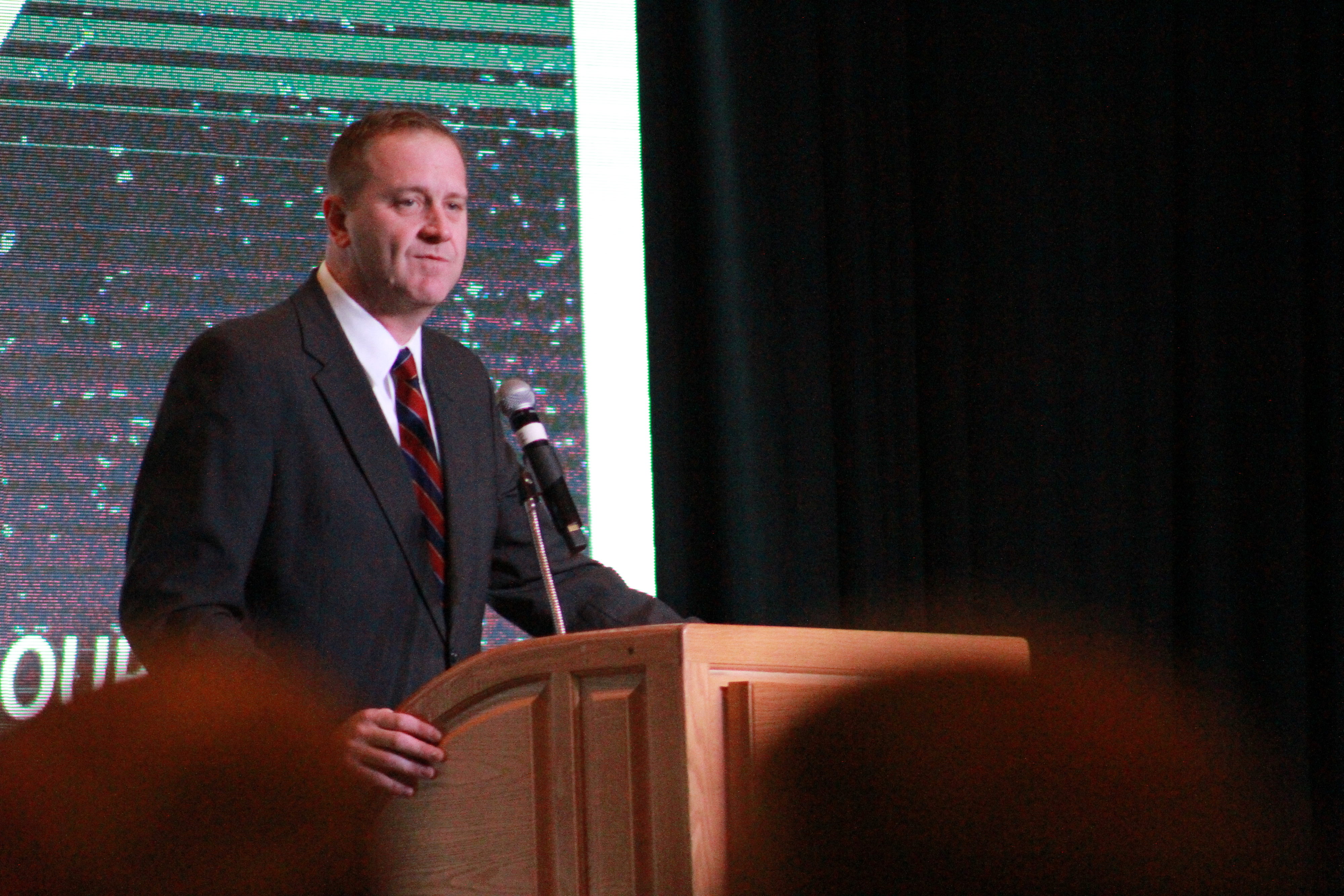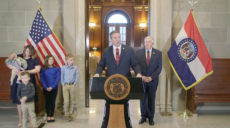Attorney General Eric Schmitt is opposing the Environmental Protection Agency’s (EPA) use of “interim values” to regulate light-duty vehicle emission standards — an issue the Missouri Farm Bureau says is just heating up.
Biden signed an executive order upon taking office reinstating an Interagency Working Group (IWG) dedicated to evaluating the “social cost” of the country’s use of carbon, nitrous oxide, and methane. The group created a set of interim values estimating the cost of a pound of each greenhouse gas to be used to offset or recoup those costs through new regulations and policies.
The IWG was disbanded in 2017 under former President Donald Trump, and its calculations were replaced with a similar system discounted at 3 percent and 7 percent, creating lower estimations than the Obama-era 5, 3, and 2.5 percent discount rates. The group reinstated the Obama-era rates on an interim basis in February.
“Agencies must be governed by any relevant statutory authorities when they decide whether and how to monetize the impacts of their actions in the context of proposing and justifying a regulatory action, including monetizing a change in greenhouse gas emissions that will result from the action,” according to a White House memo.
The EPA announced it would use those interim values to promulgate new standards on cars and trucks weighing less than 10,000 pounds this week, a move Schmitt said would be the first of several changes imposed using the reinstated Obama-era values.
Further regulations could come in the form of fines against coal-fired power plants or farms or tightened emissions standards, stifling economic development and leaving small family farmers to deal with more stringent rules, according to the Attorney General’s Office.
Schmitt, a Republican, argued the move was an expansion of regulatory power and overreach in a comment letter to EPA Administrator Michael Regan this week, arguing the promulgation of emissions standards by executives rather than the legislature violated the separation of powers.
“The Biden administration’s attempts to impose massive federal regulations on Missouri’s farmers, ranchers, and manufacturers could have vast negative impacts. Now, the Environmental Protection Agency is attempting to use these ‘interim values’ to increase emissions standards,” Schmitt said. “I will always fight back against the Biden administration’s overreach and will continue to protect Missouri’s farmers, ranchers, and manufacturers.”
Schmitt sent another letter to the EPA Friday, accusing it of working with California on the proposals but leaving other states out of the conversation. Schmitt argued establishing standards with input from one state went against prior commitments for the agency to operate transparency, citing an email from Regan to EPA staff in April.
The Attorney General’s Office today sent a letter to the EPA condemning their collusion with California to increase federal regulations while leaving “flyover” states, and the farmers and ranchers who are affected by these increased federal regulations, in the dust. pic.twitter.com/t9RTFcMJ2X
— Attorney General Eric Schmitt (@AGEricSchmitt) October 1, 2021
Schmitt sued the administration over its social cost evaluations in March, leading 11 other states in the challenge. The lawsuit was dismissed by a St. Louis judge and appealed by the coalition earlier this month.
The Missouri Farm Bureau (MOFB) has concerns the change in standards may reach far beyond light-duty vehicles. Lesslie Holloway, MOFB’s senior director of regulatory affairs, said the implementation of policies without a public comment period or review was an overreach on the Biden administration’s part and could negatively impact manufacturing and agriculture in Missouri and across the country.
“We agree with the attorney general that the Interagency Working Group has overstepped its bounds,” Holloway told The Missouri Times. “This is only one of what will be many examples of how these social cost evaluations will be used to inflate the benefits of overregulation. Farmers are heavy consumers of energy and this will be a very costly approach.”
Holloway said the interim values would likely be used by several federal agencies beyond the EPA, leading to cost increases for agriculture producers and other industries as new standards are implemented. The consequences will be “unwarranted, significant, and far-reaching,” she warned.
Other groups have urged the administration to push its standards further: A group of 21 attorneys general called on the EPA to adopt stricter standards, urging it to “address the devastating risks of climate change and the ongoing harms facing communities.”
The IWG is expected to release updated values in early 2022.

Cameron Gerber studied journalism at Lincoln University. Prior to Lincoln, he earned an associate’s degree from State Fair Community College. Cameron is a native of Eldon, Missouri.
Contact Cameron at cameron@themissouritimes.com.

























